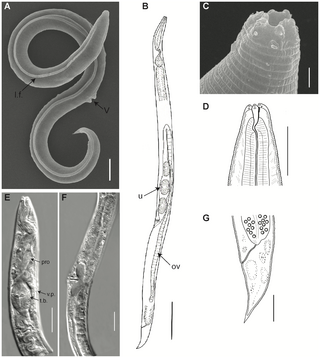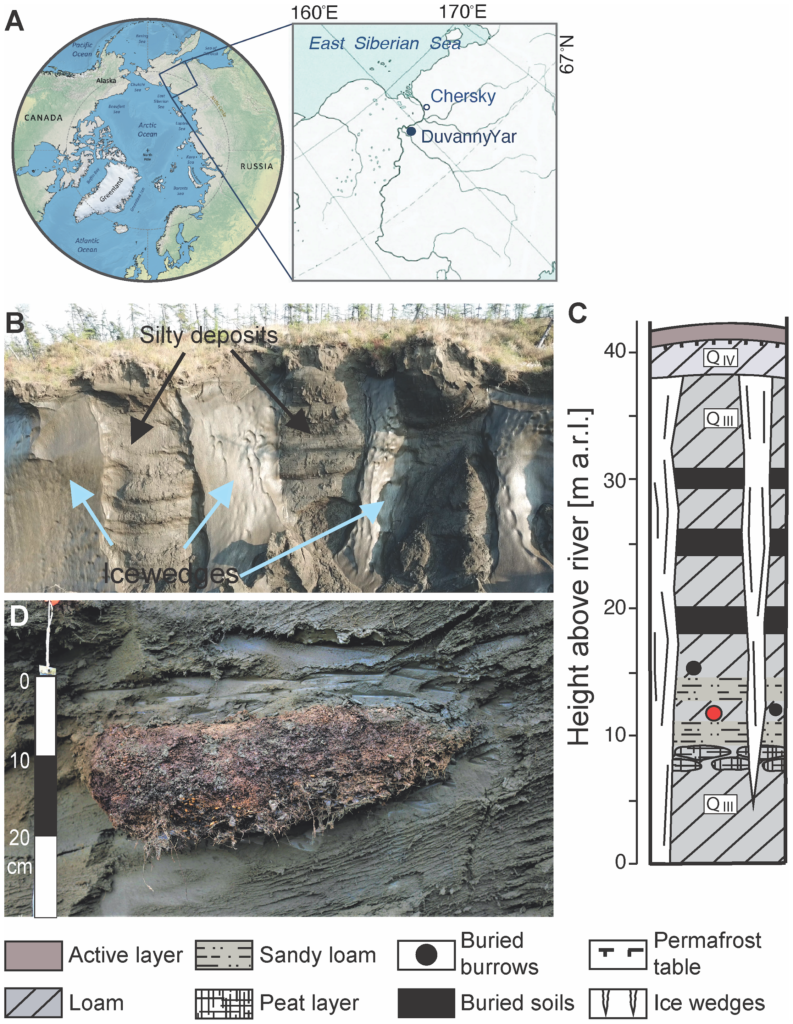In 2018, scientists made a remarkable discovery that has since captured the attention of the scientific community and the world at large. Hidden deep within the frozen Siberian permafrost were two types of microscopic nematodes, commonly known as roundworms, estimated to be around 42,000 to 46,000 years old. These tiny creatures have provided invaluable insights into the astonishing phenomenon of cryptobiosis, a state in which organisms can suspend their metabolism to survive in harsh conditions. The recent publication of a study in the journal PLOS Genetics unveils a new species among these ancient nematodes, deepening our understanding of their remarkable survival mechanisms.
Table of Contents
Panagrolaimus kolymaensis: The Unearthed Cryptobiotic Champion
The new research, led by a team of scientists from various institutes, delved into the intricacies of the Siberian roundworms’ ability to endure extreme conditions. One of these nematode varieties was identified as a previously unknown species, aptly named Panagrolaimus kolymaensis, after the Kolyma River where they were originally discovered.
Panagrolaimus species are widely distributed worldwide and are renowned for their tenacity in environments characterized by desiccation and freezing.
Cryptobiosis: Between Life and Death
Cryptobiosis, the survival strategy displayed by these ancient nematodes, represents one of the most awe-inspiring adaptations in the natural world. It enables organisms to enter a state of suspended animation, allowing them to endure extreme conditions such as freezing temperatures, complete absence of water or oxygen, and even extreme salinity. In this cryptobiotic state, their metabolic rates plummet to undetectable levels, effectively putting their life on hold.
Genetic Analyses and Evolutionary Insights
Understanding the genetic makeup of these cryptobiotic champions has been a complex task. Panagrolaimus kolymaensis presented unique challenges due to its parthenogenic nature and the presence of triploid chromosomes, setting it apart from most other organisms studied in labs.
However, in the face of these obstacles, scientists made significant strides. They discovered that P. kolymaensis shares a molecular toolkit with the commonly studied Caenorhabditis elegans, a nematode frequently used in scientific research. The presence of a sugar called trehalose in both organisms suggests its crucial role in surviving freezing and dehydration.


Implications for Adaptation and Conservation Biology
This groundbreaking research has opened a window into the possibilities of adaptation and survival under extreme conditions. By studying these ancient nematodes, scientists can gain valuable insights into how organisms adapt to changing habitats caused by climate change.
The discovery of Panagrolaimus kolymaensis and its exceptional abilities raises intriguing questions about the potential for other species to survive in cryptobiosis. Moreover, understanding the processes and genetic mechanisms that enable such survival may offer potential applications in conservation biology to protect other species facing extreme conditions.
The study of these resilient nematodes also highlights the potential for evolutionary insights. The fact that P. kolymaensis shares key genetic traits with an organism that is millions of years away in the evolutionary timeline suggests that certain survival mechanisms have been deeply conserved throughout evolution.
Conclusion
The unearthing of these ancient nematodes in the Siberian permafrost has provided a glimpse into the extraordinary world of cryptobiosis. Panagrolaimus kolymaensis and its fellow roundworms have defied the boundaries of time, surviving for tens of thousands of years in a dormant state.
The study continues to shed light on the mechanisms of survival and evolution, leaving us in awe of the resilience and adaptability of life in the face of adversity. As researchers continue to unlock the secrets of these ancient creatures, they may discover even more wonders hidden within the frozen depths of our planet.
The implications of their findings could have profound effects on our understanding of adaptation, evolution, and conservation biology, ultimately helping us protect and preserve life in a rapidly changing world.
Click to Know: PLOS Genetics Research



